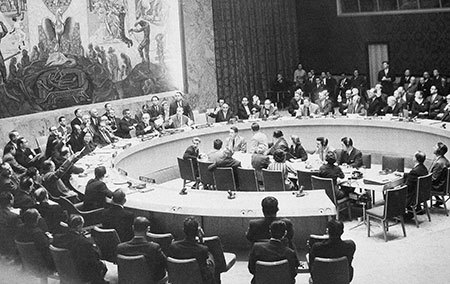#ColdWarPolitics
Explore tagged Tumblr posts
Text
The Suez Crisis of 1956
As a British nationalist, I must confront an uncomfortable truth: the Suez Crisis 1956 was a watershed moment when Britain, once the world’s preeminent power, faced the harsh reality of its diminished global standing. That fateful period saw Britain falter on the world stage and lose much of its grip on the illusion of imperial dominance.
The Crisis Unfolds
On July 26, 1956, Egyptian President Gamal Abdel Nasser announced the nationalization of the Suez Canal, previously owned and operated by the Suez Canal Company, a Franco-British enterprise. For Britain, the canal was more than a strategic asset—it was a lifeline to the Empire, connecting Europe to vital colonies and oil supplies in the Middle East. Nasser’s bold move was perceived as a direct challenge to British authority.
The ensuing weeks were marked by diplomatic wrangling, covert planning, and military posturing. Prime Minister Anthony Eden, a staunch believer in Britain’s imperial legacy, saw Nasser’s actions as intolerable. Alongside France and Israel, Britain hatched a plan to regain control of the canal. The strategy was clear: Israel would invade the Sinai Peninsula, and Britain and France would intervene under the guise of peacekeeping, seizing control of the canal in the process.

The Illusion of Power
On October 29, 1956, the plan was set into motion. Israeli forces attacked the Sinai, and Britain and France issued ultimatums, which Nasser predictably rejected. Airstrikes and landings followed, but instead of showcasing British strength, the intervention highlighted its vulnerabilities.
The United States, under President Eisenhower, condemned the operation. Eisenhower, wary of Soviet exploitation of the crisis amidst the Cold War, pressured Britain and its allies to withdraw. The financial strain of the operation compounded the issue. Facing a collapsing pound and a lack of American support, Britain had no choice but to abandon the campaign. By March 1957, British troops had withdrawn.
A Humbling Defeat
The Suez Crisis was not just a military setback; it was a blow to Britain’s pride and prestige. For centuries, Britain had projected an image of unassailable authority. The events of 1956 shattered that illusion. The country was forced to reckon with a new world order where the United States and the Soviet Union held the reins of power, relegating Britain to the status of a secondary player.
For Eden, the crisis marked the end of his political career, his reputation was irreparably damaged. For Britain, it signalled the twilight of the empire. The humiliation at Suez accelerated decolonization, with countries in Africa, Asia, and the Caribbean pushing harder for independence.

Reflections on What Was Lost
As a nationalist, it is painful to look back on Suez and not feel a sense of loss—loss of influence, loss of unity, and loss of the boldness that once defined our nation. The crisis underscored how much had changed since the days of Victoria’s empire. It revealed the cracks in the foundation of British power, forcing us to confront the limitations of our ambitions.
Yet, amidst the gloom, there is a lesson. The Suez Crisis, while a defeat, should remind us of Britain’s capacity for reinvention. From the ashes of empire, the country forged a new path, albeit a humbler one, grounded in soft power, diplomacy, and economic resilience.
In the end, Suez remains a cautionary tale: a reminder of the costs of overreach, the importance of alliances, and the need for pragmatism in a rapidly changing world. For those of us who still believe in Britain's greatness, it is a chapter worth studying—not just as a lament for what was lost but as a guide for how we might reclaim a new kind of leadership in the modern era.
#SuezCrisis#BritishHistory#1956#PostEmpireBritain#GamalAbdelNasser#AnthonyEden#BritishDecline#ColdWarPolitics#ImperialLegacy#MiddleEastHistory#BritishNationalism#AngloFrenchRelations#Decolonization#GlobalPolitics#SuezCanal#UKHistory#Eisenhower#MilitaryHistory#LossOfEmpire#LessonsFromHistory#new blog#today on tumblr
0 notes